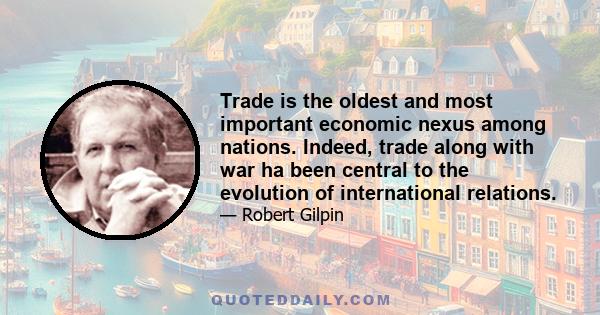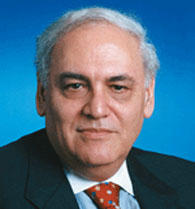Robert Gilpin Quotes

Robert Gilpin (2016). “The Political Economy of International Relations”, p.171, Princeton University Press
Robert Gilpin (2016). “The Political Economy of International Relations”, p.23, Princeton University Press
Robert Gilpin (2016). “The Political Economy of International Relations”, p.8, Princeton University Press
Robert Gilpin (2016). “The Political Economy of International Relations”, p.4, Princeton University Press
Robert Gilpin (2016). “The Political Economy of International Relations”, p.308, Princeton University Press
Robert Gilpin (2016). “The Political Economy of International Relations”, p.351, Princeton University Press
Robert Gilpin (2016). “The Political Economy of International Relations”, p.109, Princeton University Press
Robert Gilpin (2016). “The Political Economy of International Relations”, p.172, Princeton University Press
Robert Gilpin (2016). “The Political Economy of International Relations”, p.19, Princeton University Press
Robert Gilpin (2016). “The Political Economy of International Relations”, p.362, Princeton University Press
"The Political Economy of International Relations". Book by Robert Gilpin, 1987.
Robert Gilpin (2016). “The Political Economy of International Relations”, p.260, Princeton University Press
Robert Gilpin (2016). “The Political Economy of International Relations”, p.85, Princeton University Press
Robert Gilpin (2016). “The Political Economy of International Relations”, p.369, Princeton University Press
Robert Gilpin (2016). “The Political Economy of International Relations”, p.189, Princeton University Press
"The Political Economy of International Relations". Book by Robert Gilpin, 1987.
Robert Gilpin (2016). “The Political Economy of International Relations”, p.12, Princeton University Press
Robert Gilpin (2016). “The Political Economy of International Relations”, p.406, Princeton University Press
Robert Gilpin (2016). “The Political Economy of International Relations”, p.304, Princeton University Press
Robert Gilpin (2016). “The Political Economy of International Relations”, p.37, Princeton University Press
Robert Gilpin (2016). “The Political Economy of International Relations”, p.94, Princeton University Press
Robert Gilpin (2016). “The Political Economy of International Relations”, p.100, Princeton University Press
Robert Gilpin (2016). “The Political Economy of International Relations”, p.228, Princeton University Press
Robert Gilpin (2016). “The Political Economy of International Relations”, p.336, Princeton University Press
Robert Gilpin (2016). “The Political Economy of International Relations”, p.3, Princeton University Press






